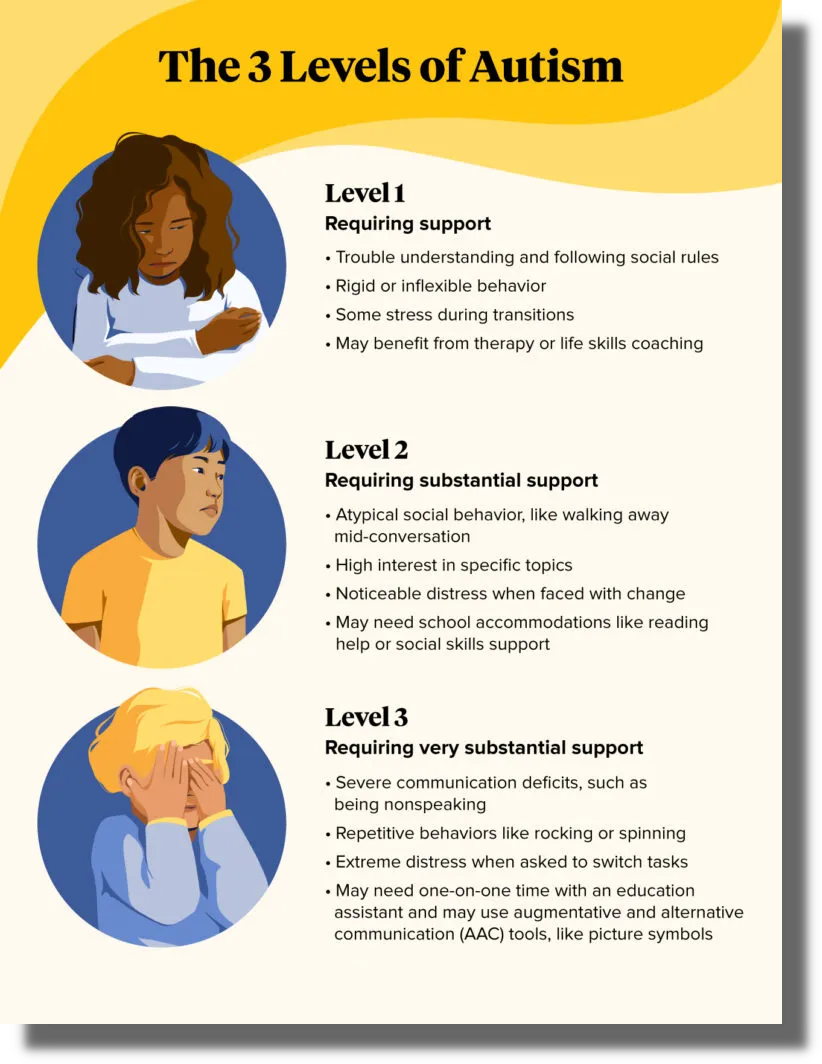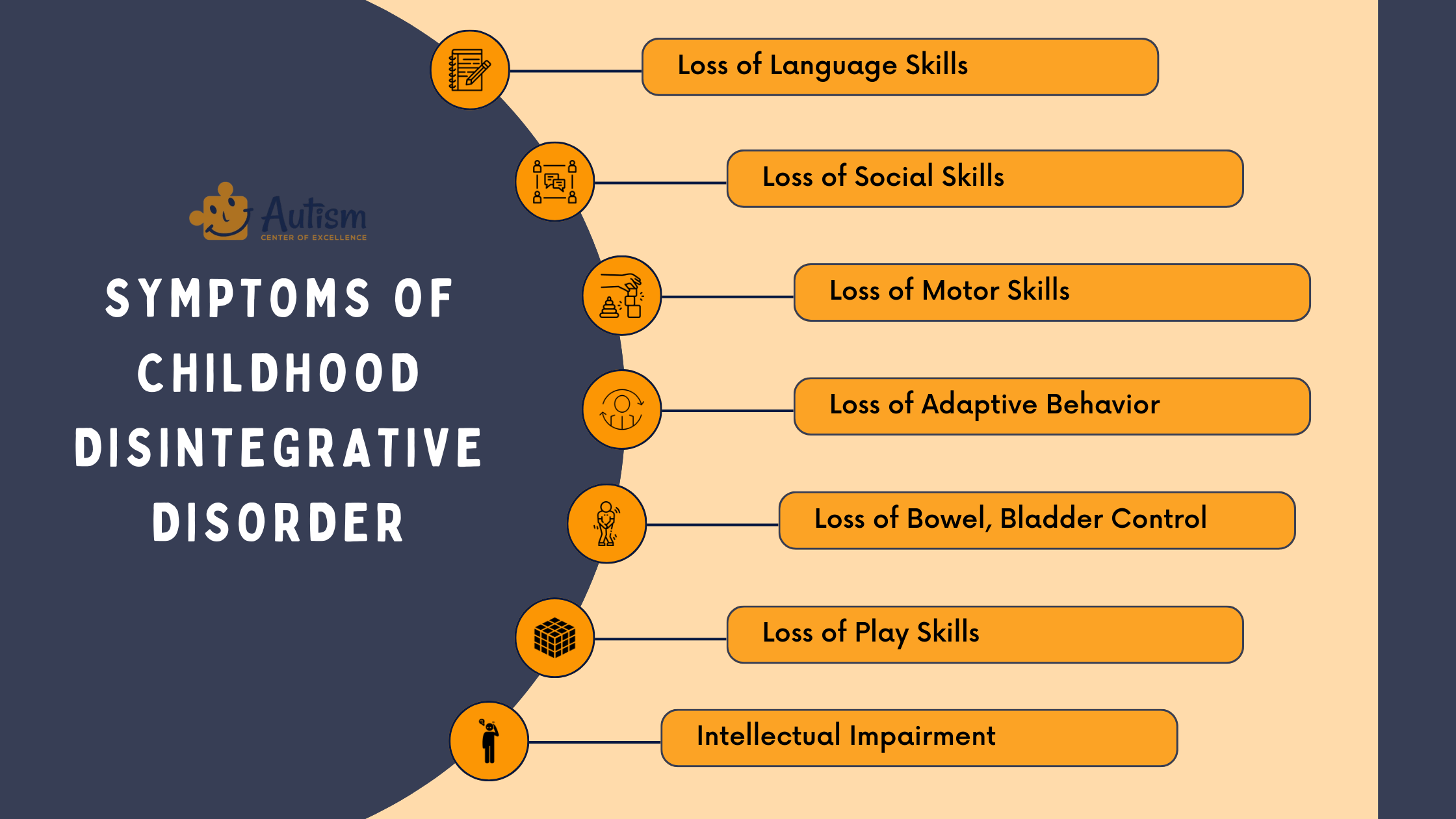Trick Indications and Symptoms to Acknowledge in Individuals With Behavior Autism
When you experience a person with behavioral autism, recognizing crucial signs and signs is necessary. You could observe difficulties in social communications and interaction, along with a solid demand for routines. Additionally, sensory level of sensitivities can lead to frustrating experiences. Comprehending these characteristics can boost your support and treatments, yet there's more to discover concerning exactly how these habits show up in daily situations. Allow's explore what these indicators truly appear like.
Challenges in Social Interactions
When you engage with a person on the autism range, you might observe they struggle with social cues and interaction. These obstacles can make social interactions feel frustrating for them.
Furthermore, you might locate that they choose regimens and familiar settings, which can restrict their determination to take part in brand-new social situations. When they do involve, they may discuss their passions in fantastic detail without noticing if you're interested. This can cause discriminatory discussions that leave you feeling disconnected. Understanding these difficulties can aid you approach communications with empathy and patience, cultivating an extra comfortable setting for both of you.
Trouble With Verbal and Non-Verbal Interaction

Recognizing these indicators is essential, as it helps you better assistance and engage with people on the autism range. By understanding their interaction obstacles, you can foster a lot more meaningful connections and supply an extra supportive atmosphere.
Repeated Actions and Routines
Communication difficulties often accompany other indicators of autism, such as recurring behaviors and a strong preference for routines. You may see that people with autism frequently take part in certain, repetitive activities, like hand-flapping, shaking, or duplicating expressions. These behaviors can give comfort and a sense of control in a commonly frustrating globe.
When they comply with a structured schedule,Routines are equally important; many individuals thrive. You may find that changes to these regimens can bring about substantial distress. As an example, if they have a day-to-day routine of eating breakfast at a particular time or complying with a specific course to school, any disruption can cause anxiety.
Identifying these patterns aids you comprehend their habits and offer support. By suiting their need for routine and allowing repeated activities, you can produce a more comfy setting that reduces their difficulties.
Sensory Sensitivities

Typical Sensory Triggers
Sensory level of sensitivities can considerably impact every day life for individuals with autism, as specific stimuli commonly set off overwhelming responses. Common sensory triggers consist of loud sounds, brilliant lights, and strong scents. You could discover that abrupt sounds, like alarm systems or alarms, trigger anxiety or distress. Fluorescent illumination in stores can really feel severe and uncomfortable. Structures can additionally play a significant role; rough textiles or specific food structures may be excruciating for you. Additionally, crowded places can bewilder your senses, making it difficult to focus or kick back. Comprehending these triggers can assist you manage your atmosphere better. By being mindful of what influences you, you can take steps to lessen discomfort and improve your day-to-day experiences.
Behavioral Feedbacks Discussed
Recognizing your behavioral reactions to sensory level of sensitivities site link is important, as they typically reveal exactly how you engage with the world. You may discover that specific noises, lights, or textures bewilder you, leading to anxiety or pain. When faced with these stimuli, you could withdraw, cover your ears, and even react boldy. These responses aren't just traits; they're your method special info of dealing with overstimulation. You may also find on your own looking for specific sensory experiences, like deep pressure or silent settings, to help ground on your own. Acknowledging these patterns helps you understand your requirements much better and can lead how you interact them to others. By recognizing your sensory level of sensitivities, you can function towards creating a setting that really feels extra comfy and convenient for you.
Coping Strategies Review
Identifying your sensory sensitivities is just the primary step; currently it's time to check out coping methods that can assist you manage those experiences successfully. Begin by creating a sensory toolkit tailored to your requirements. This could consist of noise-canceling headphones, fidget playthings, or calming scents. Establishing an organized regimen can additionally offer predictability, minimizing anxiety around sensory overload. Take breaks in a peaceful area to collect yourself when you feel overwhelmed. Practicing mindfulness methods such as deep breathing can help ground you in the moment. In addition, connect your requirements with those around you; having supportive family and friends can make a huge distinction. Keep in mind, finding what functions finest for you might require time, so be patient and open to trying new techniques.
Restricted Interests and Focus
While lots of individuals create a large range of rate of interests, those with autism typically demonstrate restricted rate of interests and an intense focus on specific topics. You may observe that someone with autism can invest hours delving into their favorite topic, whether it's a certain sort of train, a particular film, or a scientific concept. This intense emphasis isn't just a hobby; it can end up being a main component of their identity and social communications.
You might locate that discussions revolve around these passions, and they might battle to involve in more comprehensive topics. By understanding and recognizing these restricted interests, you can cultivate a supportive atmosphere where they feel valued and recognized, see this page enabling for even more meaningful connections and communications.
Emotional Guideline Difficulties
Individuals with autism typically encounter obstacles in emotional policy, which can be affected by their extreme focus on certain passions. You might see that when a person is deeply taken part in a preferred task, they can experience strong emotions, whether excitement or stress. When points don't go as planned., this intensity occasionally makes it hard for them to shift equipments or handle their sensations - Autism Behavioral Therapy.

Irregularity in Developmental Milestones
When it comes to developing milestones, you'll notice that people with autism often show a wide range of variability. You could see a child succeed in language skills however struggle with social interactions.
It's important to identify that each person's trip is special. Some may create complicated abilities early, only to face obstacles later. Others might take longer to achieve basic milestones yet then flourish in certain locations. Observing these patterns can aid you understand their strengths and needs much better.
Regularly Asked Inquiries
How Is Autism Detected in Kid and Adults?
To identify autism in children and adults, professionals review habits, interaction abilities, and social interactions. If a specific meets the criteria for autism spectrum condition., they frequently make use of standardized examinations, meetings, and observations to establish.
Exist Different Kinds of Autism Range Disorders?
Yes, there are different kinds of autism range disorders, consisting of Asperger's syndrome and pervasive developing disorder-not otherwise defined. Each kind varies in intensity and attributes, so understanding these differences can help you much better assistance individuals with autism.
What Treatments Work for Individuals With Autism?
When taking into consideration efficient treatments for individuals with autism, you'll discover alternatives like Applied Behavior Analysis, speech treatment, and occupational therapy. Each strategy can help enhance interaction, social abilities, and daily working customized to individual requirements.
Can People With Autism Lead Independent Lives?
Yes, people with autism can lead independent lives. With the right support, abilities training, and sources, you can aid them develop self-sufficiency, handle everyday jobs, and grow in various settings, fostering their independence.
Exactly How Can Family Members Assistance Loved Ones With Autism?
You can sustain your liked ones with autism by creating a structured atmosphere, motivating their passions, exercising perseverance, fostering communication, and promoting social skills. Celebrate their accomplishments, despite exactly how little, and construct an encouraging community.
Although numerous people on the autism range can recognize and use language, they frequently deal with considerable challenges with both verbal and non-verbal interaction. Recognizing these signs is essential, as it assists you better support and engage with people on the autism range. You might see that individuals with autism frequently involve in specific, repeated actions, like hand-flapping, shaking, or repeating phrases.Sensory sensitivities can significantly impact daily life for people with autism, as particular stimuli commonly trigger overwhelming responses.When it comes to developing turning points, you'll see that people with autism commonly reveal a large array of irregularity.